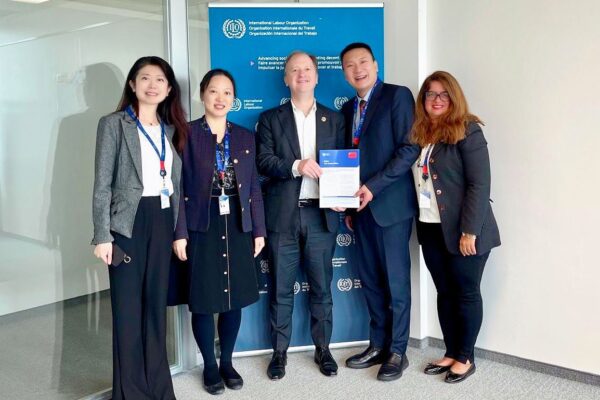
The Regional Policy Dialogue on “Policy Innovations to Navigate Labour Market Transitions and Uncertainty for High-quality and Full Employment in South-East Asia” included a dedicated session—Session 8: Leveraging South-South and Triangular Cooperation (SSTC) for High-Quality and Full Employment in South-East Asia—held on Thursday, 16 October 2025, from 13:30 to 14:30. This session explored how SSTC served as a strategic and practical framework to promote high-quality, full, and inclusive employment across the region. It highlighted successful models of cooperation, such as the Global Development Initiative, demonstrating how partnerships among countries of the Global South effectively advanced labour market resilience, skills development, and inclusive growth. Designed as an interactive discussion rather than a formal presentation, the session aimed to foster peer learning, share best practices, and identify concrete mechanisms to enhance the role of SSTC in employment policy innovation and implementation.
Moderated by Mr. Sheng Ling from the ILO Regional Office in Bangkok, the panel brought together Ms. Anita Amorim, Head of Emerging Partnerships at the ILO (virtual); Ms. Feixia Li, Senior Emerging Partnerships Relations Officer at the ILO (virtual); Mr. Jiang Wei, Deputy Director-General of the Department of International Cooperation, MoHRSS, China; and a representative from Indonesia’s BINAPENTA (TBC). The discussion was structured in two rounds: the first focused on successful and innovative SSTC practices for employment, and the second on lessons learned, challenges, and future directions. Topics included concrete examples of SSTC initiatives that had advanced employment outcomes, insights from China’s engagement through the Global Development Initiative, and Indonesia’s experiences in improving employment services and policies through South-South exchanges.
The session concluded with three key takeaways summarised by the moderator, emphasizing the growing importance of SSTC as a driver for job creation, skills upgrading, and social inclusion in South-East Asia. Logistical arrangements included a hybrid setup that facilitated virtual participation, four armchairs and microphones for in-person panellists, and audience engagement through an open Q&A. The session provided a valuable opportunity to reaffirm the region’s commitment to solidarity-driven cooperation and to identify scalable, innovative pathways for decent work and sustainable development through South-South and Triangular Cooperation.

